World
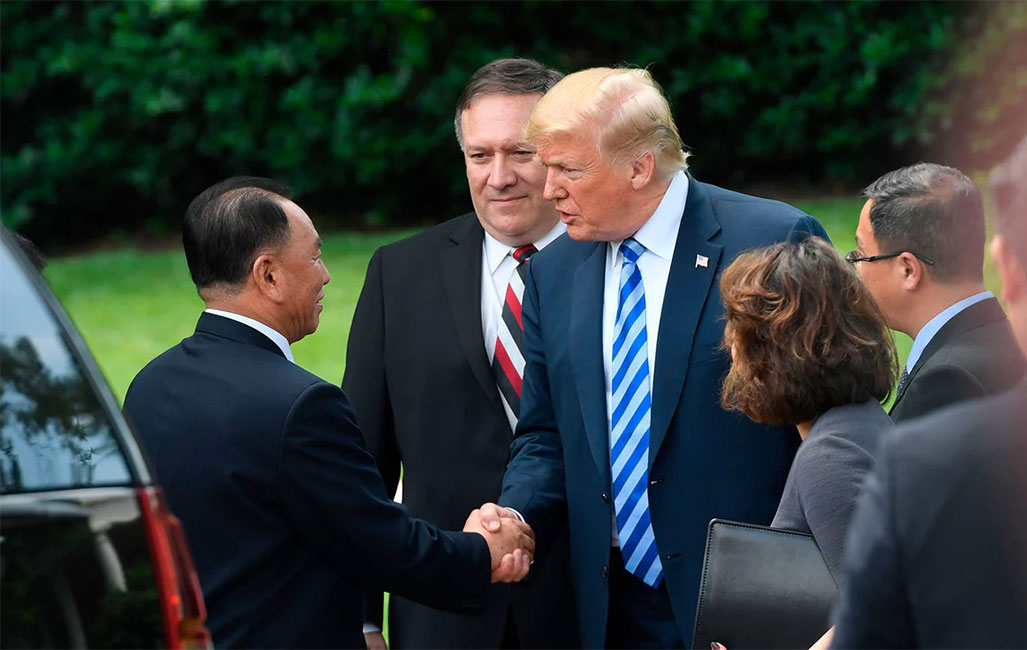
Donald Trump says North Korea summit on 12 June is back on
Donald Trump has announced that a 12 June summit with Kim Jong-un will go ahead as planned in Singapore, saying it would mark the beginning of a negotiating process with North Korea that could involve several such meetings.
Trump was speaking to reporters after meeting Kim’s top aide, Kim Yong-Chol, in the Oval Office. It had been billed as a brief courtesy visit but it continued for more than an hour and 20 minutes. In a lavish show of hospitality, Trump escorted his visitor, a former spy chief and general who is under US sanctions, outside the White House for more informal talks and to pose for photographs with the North Korean delegation.
Trump also appeared to accept the North Korean position that its denuclearisation would be a drawn-out process – not the all-in-one surrender of the regime’s nuclear arsenal that Trump officials had previously demanded.
“The big deal will be on June 12,” Trump said. “It’s a process, we're not going to sign something on June 12 and we never were. We are going to start a process. And I told them today: take your time. We can go fast, we can go slowly. I think they’d like to see something happen and if we can work something out that will be good.”
But in a dramatic downgrading of expectations from the summit, Trump said Singapore meeting would be a “getting-to-know-you meeting, plus”.
Such a meeting, the first ever between a sitting US president and a North Korean leader, has been a longstanding objective of the Pyongyang regime. To achieve it, it has suspended nuclear and long-range missile tests, but has given no undertakings on the scale or speed of its nuclear disarmament.
Source : The Guardian
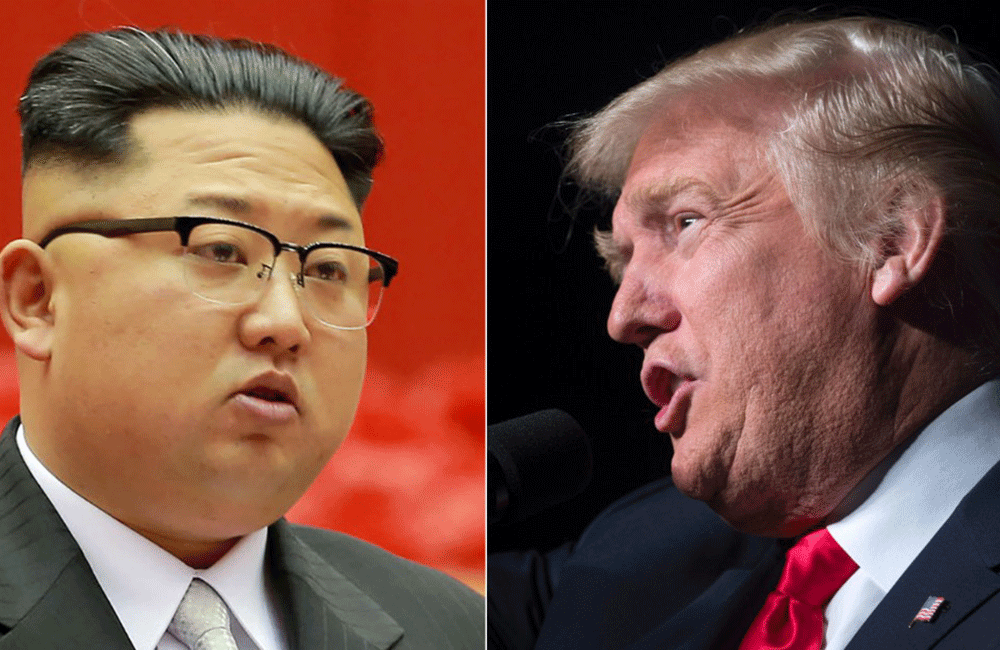
Trump cancels Kim summit amid North Korea 'hostility
US President Donald Trump has cancelled a planned summit with North Korean leader Kim Jong-un.
He said he had made the decision based on the "tremendous anger and open hostility" in a recent North Korean statement.
Trump said it would be "inappropriate" to hold the summit as scheduled in Singapore on 12 June.
In a letter to Kim, he said he was very much looking forward to meeting him "some day".
"I was very much looking forward to being there with you. Sadly, based on the tremendous anger and open hostility displayed in your most recent statement, I feel it is inappropriate, at this time, to have the long-planned meeting," Trump said.
"You talk about your nuclear capabilities, but ours are so massive and powerful that I pray to God they will never have to be used," he added.
Trump ended his letter by saying Kim should call him if he changed his mind.
"The world, and North Korea in particular, has lost a great opportunity for lasting peace and great prosperity and wealth. This missed opportunity is a truly sad moment in history," he said.
Earlier on Thursday, North Korean official Choe Son-hui dismissed remarks by US Vice-President Mike Pence - who had said North Korea "may end like Libya" - as "stupid".
Libyan leader Muammar Gaddafi was killed by rebels in 2011 after renouncing nuclear weapons eight years earlier.
Choe, who has been involved in several diplomatic interactions with the US over the past decade, said the North would not "beg" for dialogue and warned of a "nuclear showdown" if diplomacy failed.
Also on Thursday North Korea appeared to blow up tunnels at its only nuclear test site.
Foreign reporters at the Punggye-ri site in the north-east said they had witnessed a huge blast. Pyongyang later said the site had been dismantled.
Source : BBC
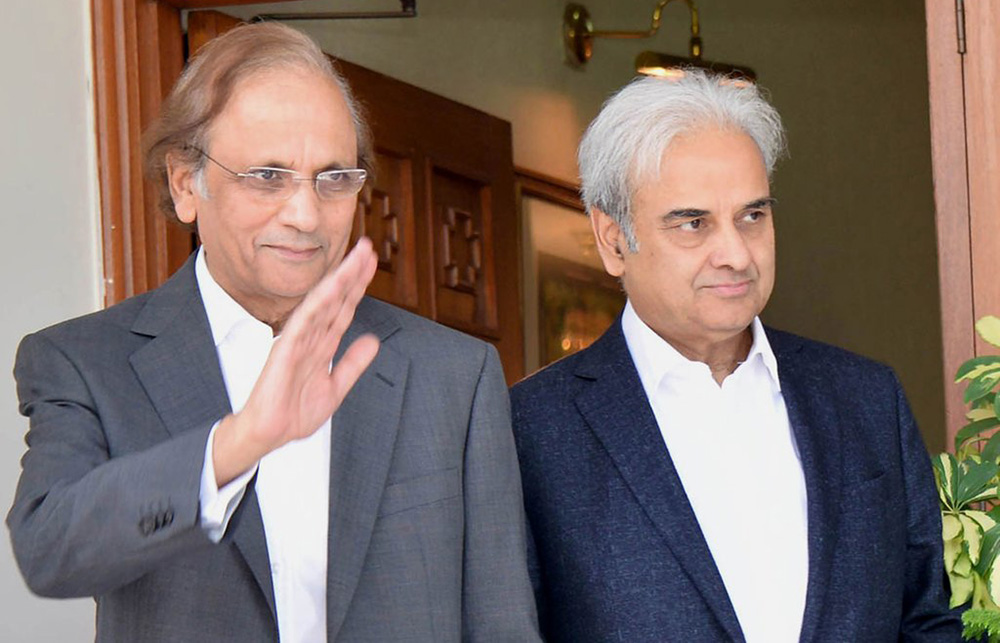
As Pakistan Election Nears, Caretaker Prime Minister Is Named
A former Pakistani Supreme Court chief justice has been chosen as the caretaker prime minister until late July, when Pakistan is to hold general elections.
The appointment of the former justice, Nasir ul-Mulk, as the head of a neutral, interim government was announced at a joint new conference in Islamabad on Monday by Prime Minister Shahid Khaqan Abbasi and Syed Khurshid Shah, the opposition leader.
Mulk is likely to be sworn in on Friday.
The election marks the second democratic transition in Pakistan’s history, though it comes amid months of political tumult and civil-military tensions.
The five-year term of the governing political party, Pakistan Muslim League-Nawaz, ends on May 31. Last week, President Mamnoon Hussain announced that the general elections for the national assembly and four provincial ones would be held on July 25.
Mulk enjoys a politically neutral reputation. His tenure as chief justice in 2014 was not marred by the accusations of judicial overreach that plagued some of the other Supreme Court leaders.
Source : New York Times
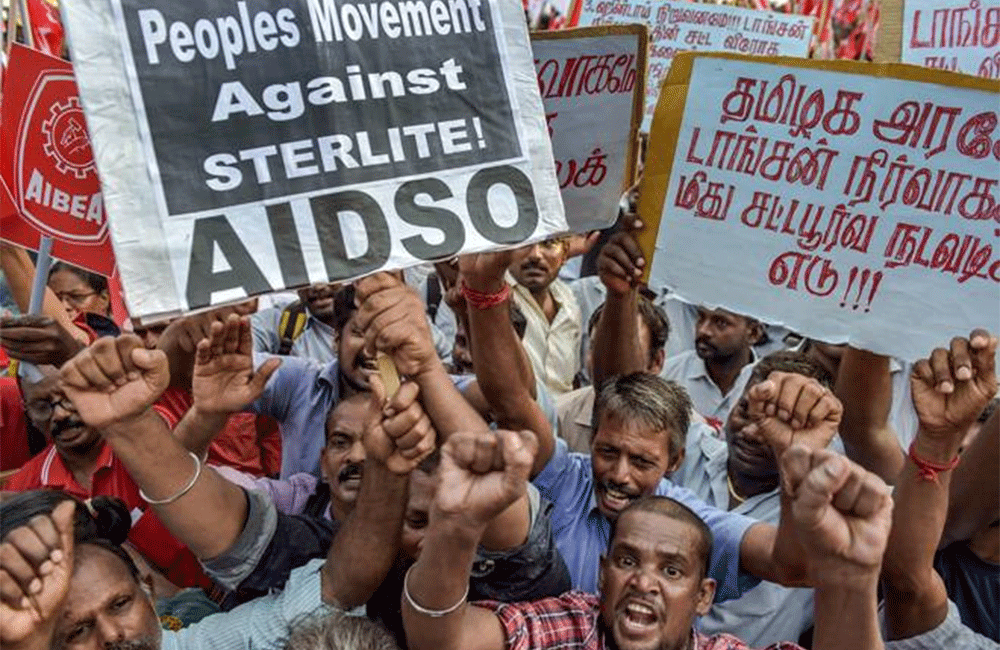
India’s Tuticorin tense after deadly Sterlite Copper violence
A port city in southern India's Tamil Nadu state remains tense after protests erupted in violence that left at least 11 people dead.
Protests against the Sterlite Copper subsidiary of the Vedanta Resources have been going on for months in Tuticorin.
Residents say a copper smelter is causing environmental damage.
Paramilitary forces are likely to be deployed after two days of clashes between police and local people.
On Wednesday, a court halted the proposed expansion of the company.
Vedanta has denied all the allegations against it and says it plans to double the capacity of the plant.
One person was killed on Wednesday when police fired rubber bullets to disperse violent demonstrators, officials said.
"We fired live ammunition in the air to disperse the protesters. But the mob continued to pelt stones and bombs. They were setting fire to vehicles," a police officer told the AFP news agency.
On Tuesday, 10 people died when police opened fire as a huge crowd of protesters stormed district government headquarters.
Amnesty International said police had "many questions to answer" and "those responsible should be brought to justice".
P Mahendran, chief of Tuticorin police, said 18 policemen were injured in the clashes.
Tamil Nadu chief minister Edappadi K Palaniswami has ordered a judicial inquiry into the shootings but defended the police response.
A curfew has been imposed in parts of the city and internet services are suspended. Most businesses have remained shut since the violence began.
Protesters say the plant is polluting ground water in the area and threatens the fishing industry.
The plant has been shut for more than 50 days due to alleged non-compliance with environmental rules.
Source : BBC

Alan Bean, the fourth human to walk on the Moon, has died
Alan Bean—the fourth human to walk on the Moon, one of the first Americans to live aboard a space station, and a man who left space flight behind to devote the second half of his life to painting—died on Saturday in Houston. He was 86.
With Bean's passing, just four living human beings have walked on the Moon: Buzz Aldrin, 88; Dave Scott, 85; Charlie Duke, 82; and Harrison Schmitt, 82. The eight other humans who landed on the Moon in the late 1960s and early 1970s during NASA's Apollo Program have died, as have all of the original seven astronauts in the Mercury space program.
After Bean earned an engineering degree from the University of Texas at Austin, he was commissioned in the US Navy and became first an aviator and later a test pilot. NASA selected him as a member of its third class of astronauts in 1963. Following his astronaut training and a few stints as a backup crew member, Bean received his assignment as the lunar module pilot for Apollo 12, which became, in November 1969, NASA's second mission the Moon's surface.
Source : ARS Technica
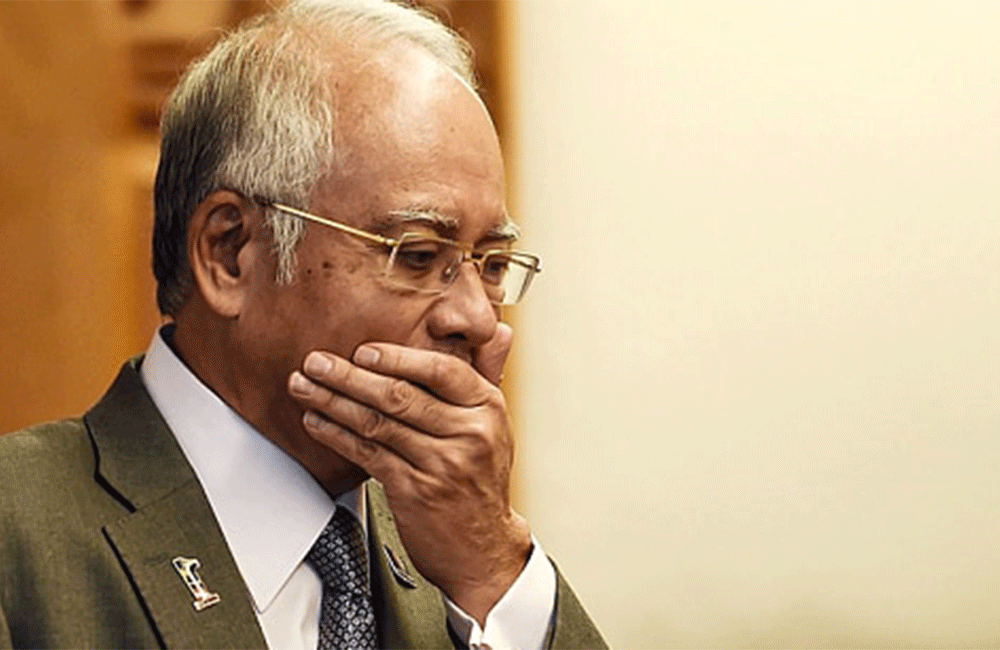
Najib Razak: Scandal-hit ex-Malaysia PM condemns police raids
Malaysia's former Prime Minister Najib Razak has criticised police raids after hundreds of luxury items and cash were seized at properties linked to him. Najib's lawyer, Harpal Singh Grewal, said his client was "very unhappy".
The raids were related to investigations into state development fund 1MDB, which Najib set up.
Separately, Mongolia's president has called for the new Malaysian government to investigate the grisly 2006 murder of a Mongolian model.
Shaariibuu Altantuya, 28, was shot dead and blown up with explosives outside the capital Kuala Lumpur. Two ex-police officers were sentenced to death for the murder in 2015.
If the case were re-opened it could spell more trouble for the recently toppled Najib. The two officers belonged to an elite unit protecting top lawmakers, including the then deputy PM, when Altantuya, was killed. She was the mistress of a close Najib associate.
Speculation about Najib's links to the murder have swirled in Malaysia for years but he has repeatedly said he never met the model and had nothing to do with it.
Billions of dollars are unaccounted for from the fund. Najib was in 2015 alleged to have pocketed $700m (£517m) but was cleared by authorities. He has always denied the allegations,
The corruption scandal was a major factor in Najib's shock election loss to his former ally Mahathir Mohammad last week. Mahathir has said that he believes the missing money can be recovered. He has banned Najib and his wife Rosmah Mansor from leaving the country. Malaysia's Anti-Corruption Commission has ordered Najib to make a statement relating to the corruption scandal on 22 May.
Grewal said that the former prime minister and his family were "very unhappy" that police had confiscated - among many other items - children's clothes and shoes during the raids on properties across the capital Kuala Lumpur.
"No attempt was made to verify whether these dresses, shoes, babies clothes and all had anything to do with the investigations which are ongoing," he was quoted as saying by Reuters. He also said the police had acted in a "cavalier and irresponsible manner".
The police raids had been going on for several days, in the full view of the media, with police saying that the items removed included 284 boxes containing designer handbags and foreign currency. At one point a locksmith was brought in to open a safe removed from Najib's home.
Grewal earlier described that incident as "unwarranted harassment". Malaysian police have not publicly commented on the lawyer's complaints.
Source : BBC
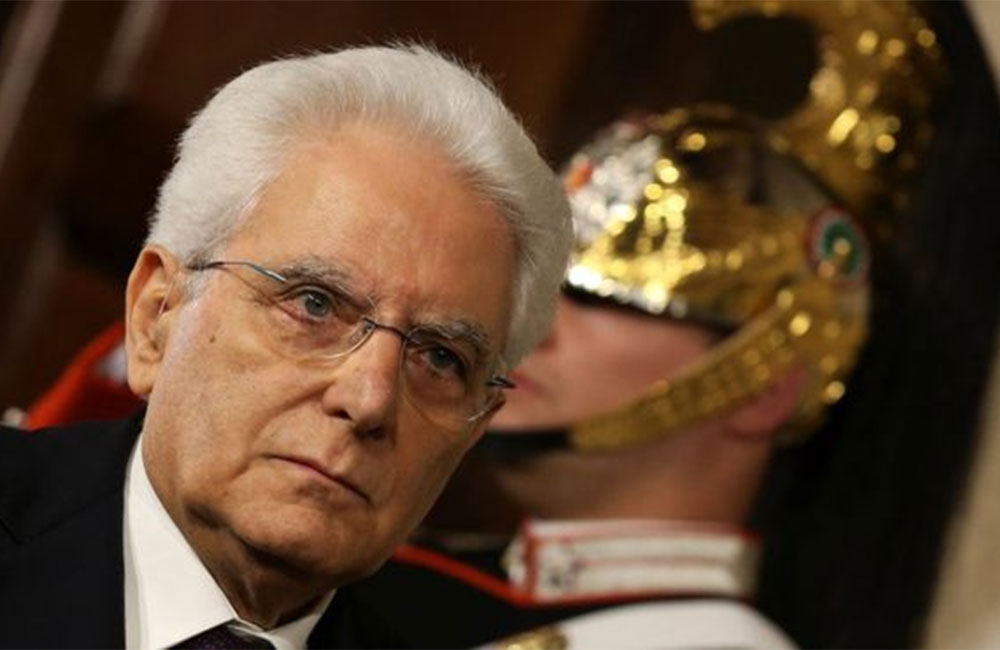
Italy in crisis: Calls to impeach President
Italy is mired in fresh political turmoil, with the president facing impeachment calls after he vetoed a choice for finance minister.
In a rare move, President Sergio Mattarella said he could not appoint the Eurosceptic Paolo Savona, citing concerns by investors.
The decision ended a bid by Italy's two populist parties to form a coalition.
Mattarella may now appoint a stop-gap prime minister with early elections looking increasingly likely.
He has summoned Carlo Cottarelli, a former executive director of the International Monetary Fund, who could form an interim administration.
Italy, the eurozone's fourth-biggest economy, has been without a government since elections in March because no political group can form a majority.
The Five Star Party had been trying to form a government with another populist party, the right-wing League.
The BBC's James Reynolds in Rome says a temporary prime minister is unlikely to last long and early elections may have to be called.
There is now a real argument between the president and the populists about Italy's position in the EU, he adds.
Source : BBC

Gina Haspel confirmed as CIA's first female director
The US Senate has approved the CIA's first female director, despite her role in the spy agency's post-9/11 interrogation programme.
Gina Haspel's confirmation in a 54-45 vote follows a partisan fight among senators about the CIA's Bush-era use of techniques such as waterboarding.
Ms Haspel, a CIA veteran, once oversaw a so-called black site in Thailand after the 11 September 2001 attacks.
The former CIA chief, Mike Pompeo, left to become US Secretary of State.
Republican Senator John McCain - who was tortured during his more than five years in a Vietnamese prison - had earlier announced his opposition to US President Donald Trump's nominee.
On Thursday, six Democrats crossed party lines to vote in her favour.
One of them, Virginia Senator Mark Warner, said Ms Haspel had told him the agency should never have resorted to so-called enhanced interrogation techniques.
He said she had pledged never to use such methods even if the president demanded it.
A 33-year veteran of the agency, Ms Haspel, 61, spent most of her career as an undercover operative.
In 2002, she was selected by the agency to run a "black site" in Thailand where harsh interrogation techniques were used that a Senate report deemed to be torture.
One suspect that was brought there, Abd al-Rahim al-Nashiri, was brutalised using methods that were later banned by President Barack Obama.
Al-Nashiri, who was interrogated after Ms Haspel took over the post, was also subjected to sleep deprivation, nudity, extreme temperatures, being held in a small box, and "walling" (being slammed repeatedly into a wall).
Three years later, Ms Haspel ordered the destruction of 92 video tapes that documented the interrogation of him, and Abu Zubaydah, who was also held at the Thai location.
At least 119 men were tortured by the US in the aftermath of the attacks on the World Trade Center and Pentagon, according to a 2014 Senate report.
Human rights groups say Ms Haspel left Thailand to oversee further US torture, but it is unclear what role she played as her exact record has been classified by the CIA.
Mr Trump has previously called for the US to resume waterboarding terrorism suspects.
Source : BBC
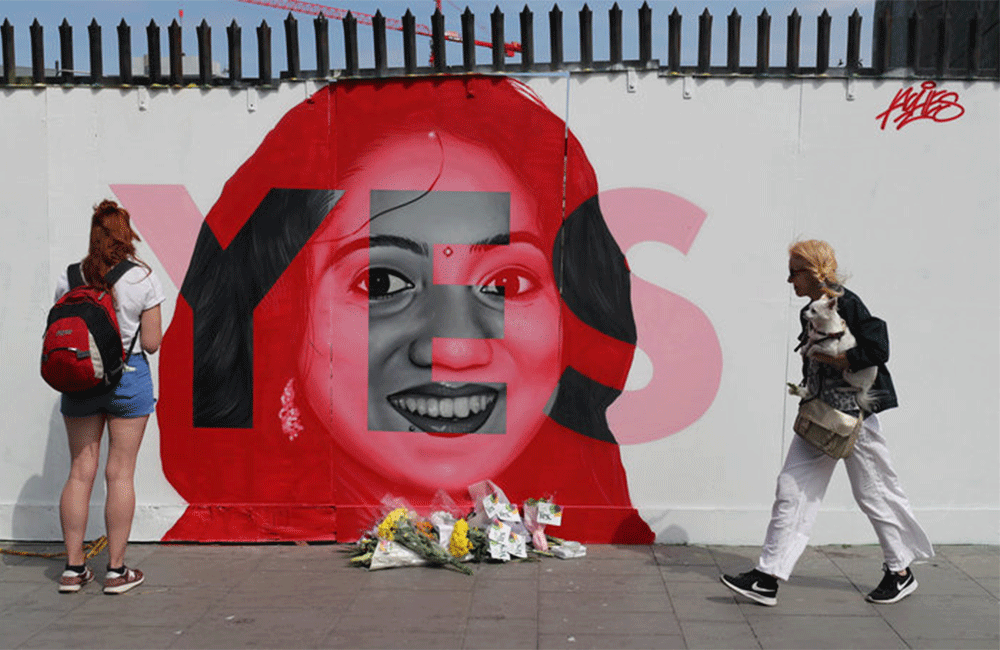
Ireland Abortion Amendment Set To Be Repealed In Historic Referendum
Irish voters on Friday repealed the country’s eighth constitutional amendment, a decade's long ban on abortion that had forced thousands of women to either illegally order abortion pills online or travel to the United Kingdom to access the procedure.
The landmark referendum heralds a new era for women’s rights in a government that for centuries operated as a theocracy. Ireland’s parliament is now expected to write a more liberal law on the procedure, which will likely allow a woman to complete an abortion until up to 12 weeks of pregnancy.
The legalization of abortion in Ireland delivers a huge blow to the global anti-abortion movement, which had looked to the Western country’s near-total ban on the procedure as a beacon for other efforts around the world. International religious and anti-abortion groups ― many of them American ― had poured money and resources into a sophisticated digital campaign to uphold the ban in Ireland.
Ireland is one of the richest countries in the world, but since adopting the eighth amendment in 1983 it has banned abortion except to save the life of the mother. The most infamous case is that of Savita Halappanavar, a 31-year-old dentist who died in 2012 from complications related to a septic miscarriage. Her medical team had denied her request for an abortion at 17 weeks of pregnancy.
Source : Huff Post

Donald Trump's warning to Kim Jong-un: make a deal or suffer same fate as Gaddafi
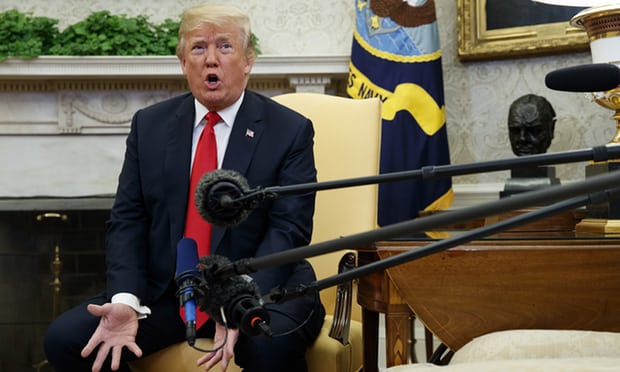
Trump at the White House on Wednesday. The ‘Libya model’ John Bolton was referring to was Gaddafi’s agreement to surrender his nuclear weapons in 2003. Photograph: Evan Vucci/AP
Donald Trump has threatened Kim Jong-un with the same fate as Muammar Gaddafi if the North Korean leader “doesn’t make a deal” on his nuclear weapons programme.
The US president issued the threat at the White House when he was asked about the recent suggestion by his national security adviser, John Bolton, that the “Libyan model” be a template for dealing with North Korea at a summit between Trump and Kim planned for 12 June in Singapore.
The model Bolton was referring to was Gaddafi’s agreement in December 2003 to surrender his embryonic nuclear weapons programme, which included allowing his uranium centrifuges to be shipped out to the US.
But Trump appeared to be unaware of that agreement, and interpreted the “Libyan model” to mean the 2011 Nato intervention in Libya in support of an insurrection, which ultimately led to Gaddafi’s murder at the hands of rebels in Tripoli. “The model, if you look at that model with Gaddafi, that was a total decimation. We went in there to beat him. Now that model would take place if we don’t make a deal, most likely. But if we make a deal, I think Kim Jong-un is going to be very, very happy,” Trump said, suggesting that the regime’s survival could be assured if Kim agreed to disarm.
“This with Kim Jong-un would be something where he would be there. He would be running his country. His country would be very rich,” the president said.
“We’re willing to do a lot, and he’s willing … to do a lot also, and I think we’ll actually have a good relationship, assuming we have the meeting and assuming something comes of it. And he’ll get protections that will be very strong.”
Asked whether his comments meant that he disagreed with his national security adviser, the third of his administration, the president said: “I think when John Bolton made that statement, he was talking about if we are going to be having a problem, because we cannot let that country have nukes. We just can’t do it.”
Joel Wit, a former US negotiator who is now a senior fellow at the US-Korea Institute at Johns Hopkins University, said: “This is probably the wrong time to be making threats, three weeks before the summit.”
The inflammatory comments come at a time when the June meeting is in doubt. The regime in Pyongyang reacted strongly against statements by Bolton over the weekend, who insisted North Korea would have to dismantle its nuclear arsenal completely and immediately. A senior official said on Wednesday that Kim would not take part in a summit with such “one-sided” goals.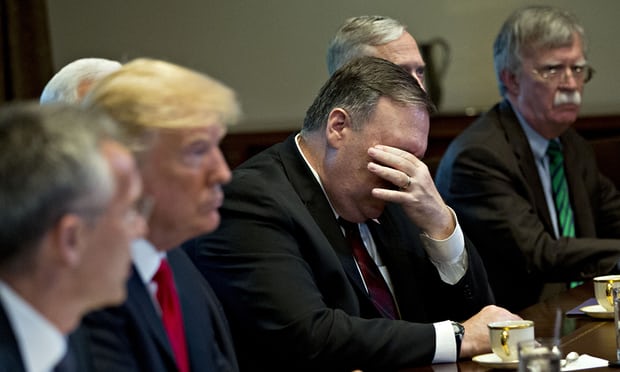
Trump in a White House meeting with Mike Pompeo (middle), John Bolton, (far right) and the Nato chief Jens Stoltenberg (far left). Photograph: Pool/Getty Images
Pyongyang has also complained about joint military exercises being conducted by US and South Korean forces. The regime’s mission to the United Nations issued a statement on Thursday claiming that nuclear-capable B-52 bombers and F-22 fighter planes were taking part in the exercises. He described it as “an extremely provocative and ill-boding act”.
However, Trump said that despite Pyongyang’s threats to call off the summit, “they’ve been negotiating like nothing happened”.
The state department spokeswoman, Heather Nauert, said: “We are continuing to push ahead and plan our preparations. Those continue at this time for a meeting between the president and Kim Jong-un in June.”
At a meeting in Tokyo on Tuesday, a senior state department official suggested that a substantial but partial disarmament by North Korea might be acceptable as the first stage of a deal with North Korea.
Speaking to a meeting of business executives in Tokyo organised by the Wall Street Journal, Susan Thornton, the acting assistant secretary of state for East Asia and Pacific Affairs, said that in Kim’s conversations with South Korean officials, he had said “there will be a big downpayment, a big up-front demonstration of his intention” to dismantle the North Korean nuclear weapons programme completely.
“The question is: what could be front-loaded in a process that’s inevitably going to go on for some time? And then what would be acceptable to the North Korean side in return for that front-loading?” Thornton said.
(The Guardian)
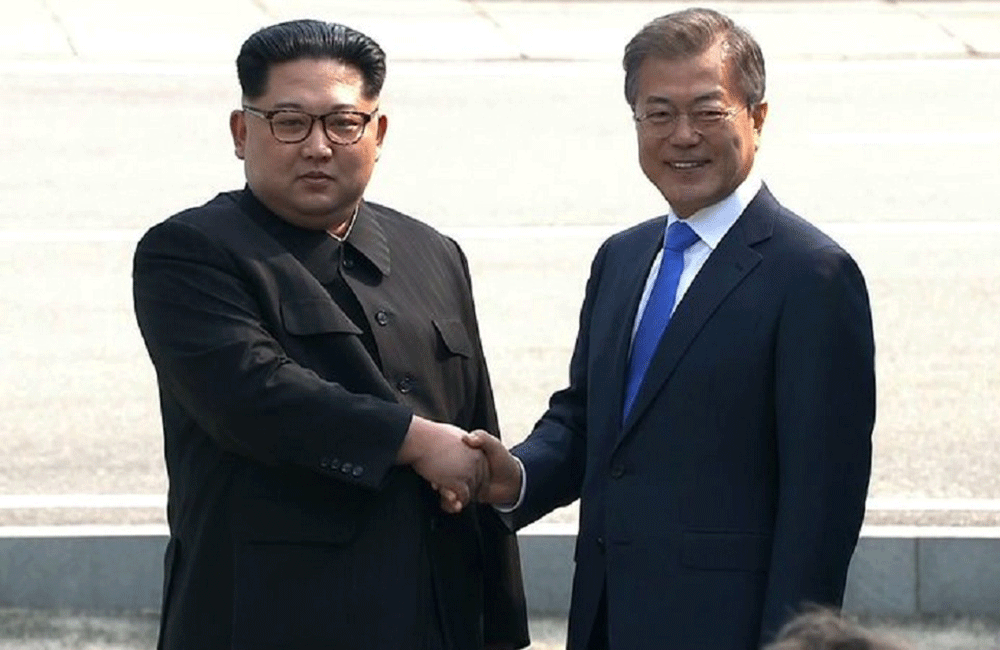
Korean leaders meet in surprise summit
The leaders of North and South Korea have met in the demilitarised border area between the two countries.
The meeting is only the second between South Korea's Moon Jae-in and the North's Kim Jong-un. It comes as the two sides continue efforts to put a historic US-North Korea summit back on track.
On Thursday US President Donald Trump cancelled the summit, scheduled for 12 June, but later suggested it might still go ahead.
The latest talks were held on the northern side of the Panmunjom truce village, between 15:00 and 17:00 local time (06:00 and 08:00 GMT), Moon's office said.
"Both leaders exchanged opinions... for the successful holding of the North Korea-US Summit," it added, saying that Moon will announce the outcome of the talks on Sunday morning.
Source : BBC
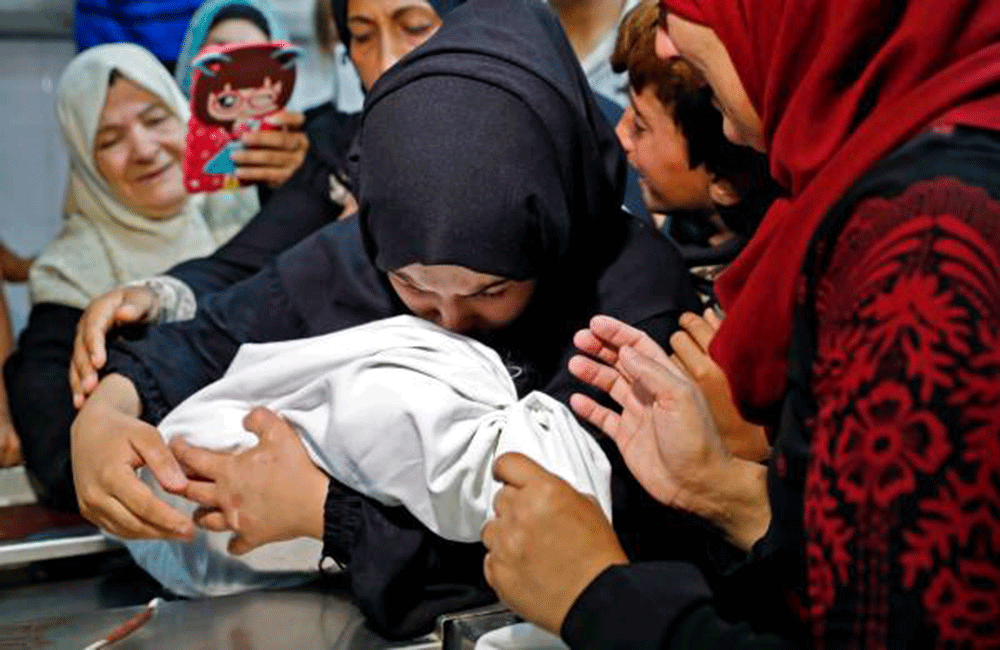
Tension in Gaza as Palestinians begin to bury 58 dead
Funerals are being held in Gaza for 58 people killed on Monday when Israeli troops opened fire during Palestinian protests, in the deadliest day of violence there since a war in 2014.
The burials coincide with the 70th anniversary of what Palestinians call the Nakba - a mass displacement of Palestinians after Israel's creation.
Israel's military said it was preparing for further confrontations on Tuesday.
But Palestinian groups indicated they intended to rein in the protests.
Monday's violence came as the US inaugurated its first embassy in Jerusalem, a controversial move that broke with decades of US policy and incensed Palestinians.
Palestinians claim East Jerusalem as the capital of a future Palestinian state and see the US move as backing Israeli control over the whole of the city - which Israel regards as its indivisible capital.
Palestinian officials said that, as well as those killed, about 2,700 people had been injured in Monday's violence - which they condemned as a massacre.
Israeli Prime Minister Benjamin Netanyahu said his military was acting in self-defence against Gaza's Islamist rulers, Hamas, who seek to destroy Israel. Israel's military said it had only fired at "targets of terrorist activity".
The UN human rights office was heavily critical of Israel's use of force.
Source : BBC
Page 34 of 51